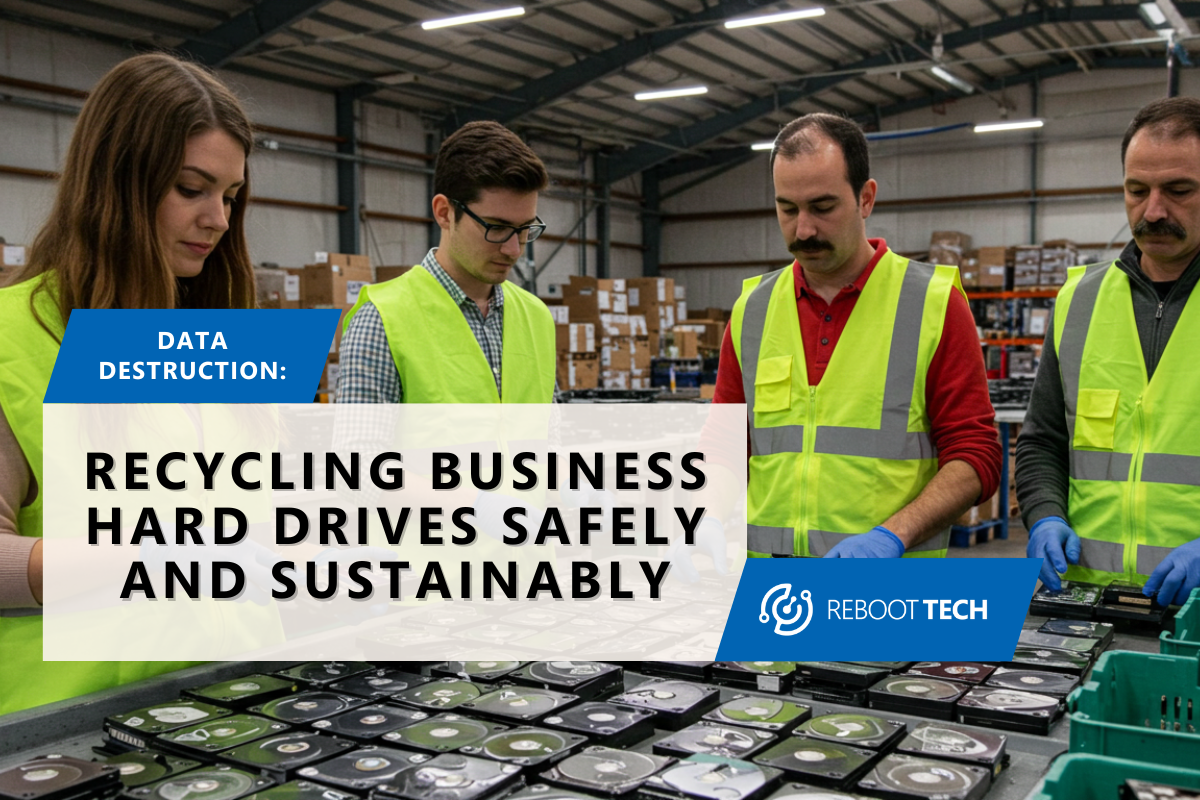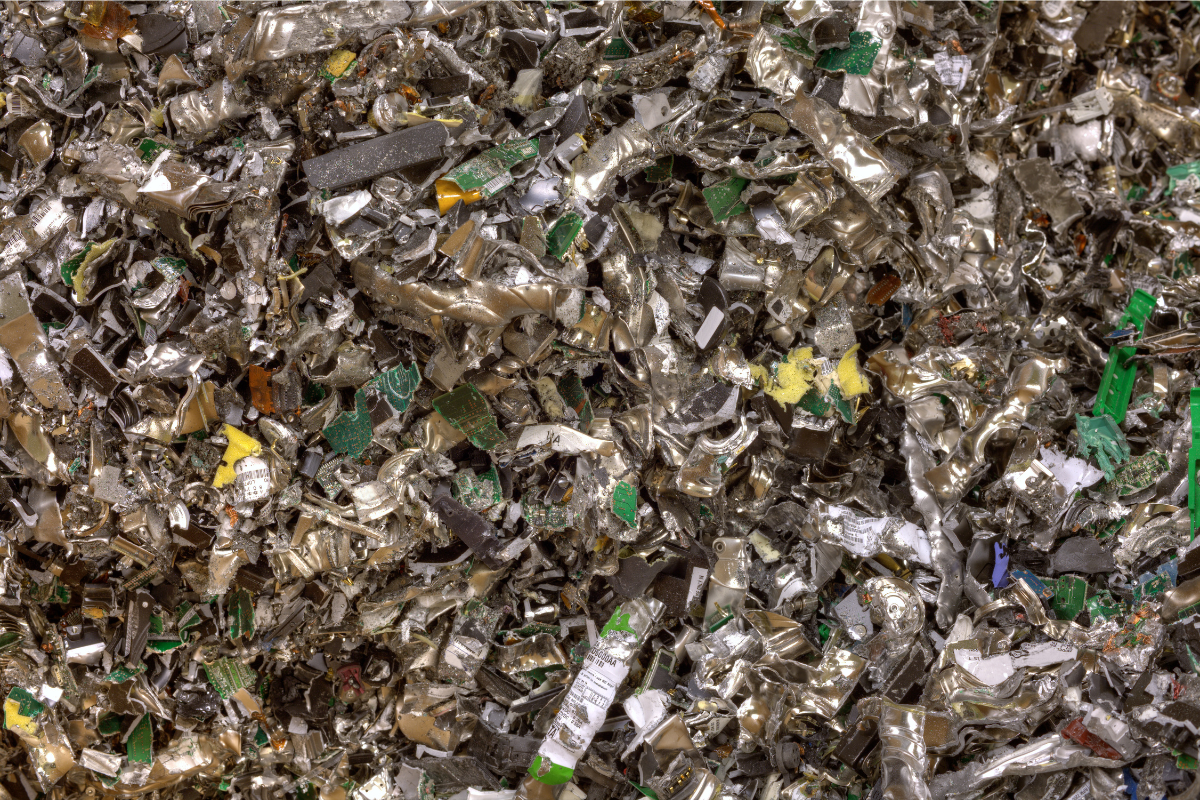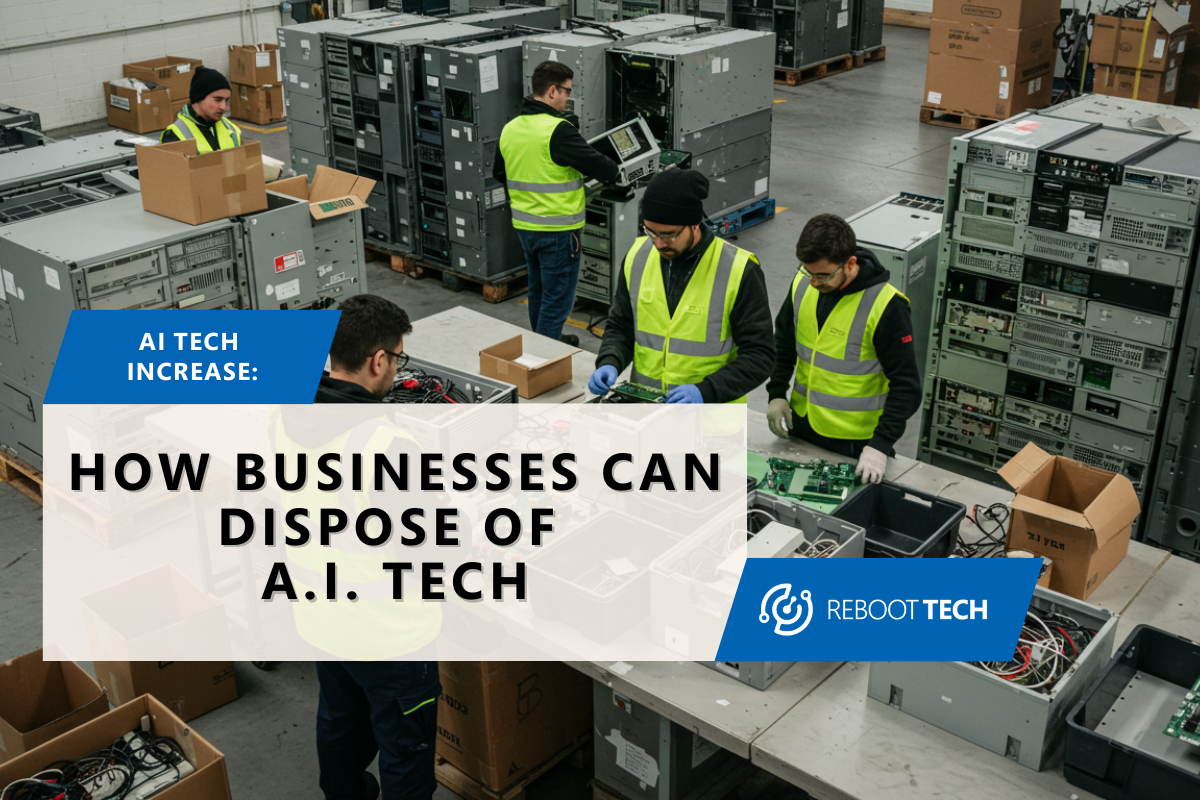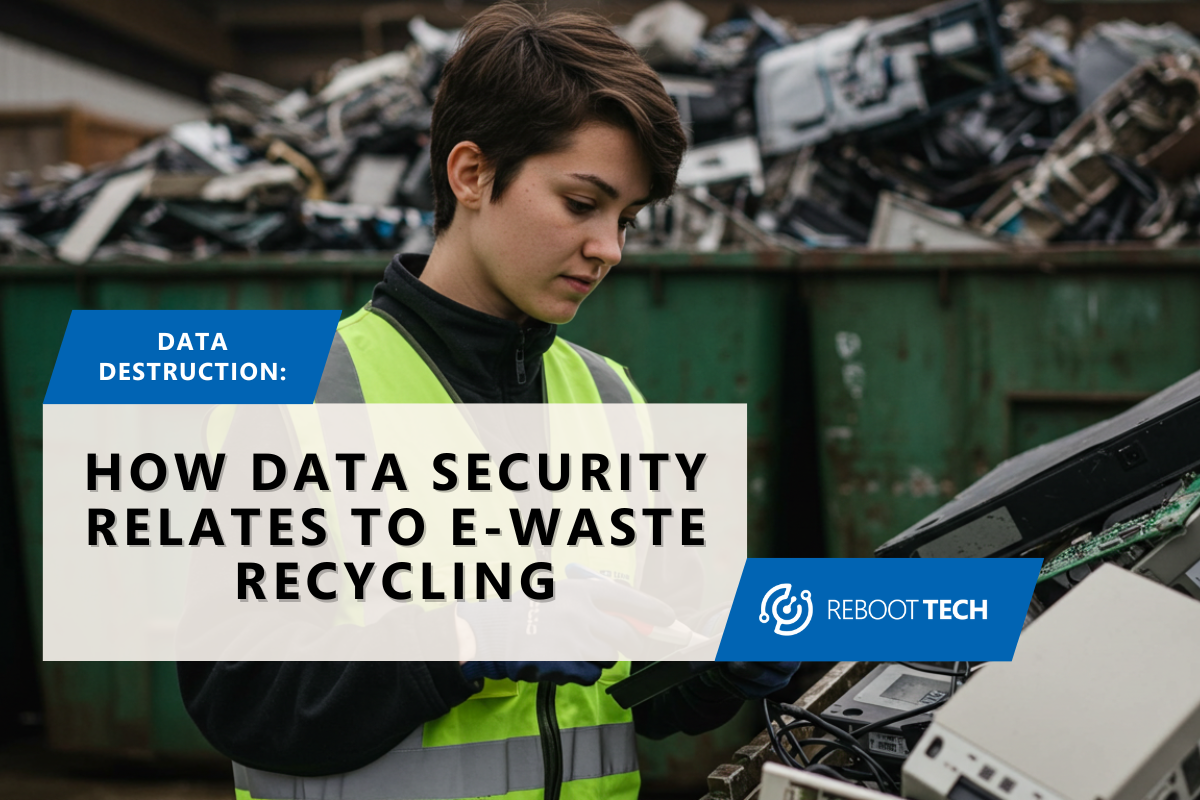
Why Recycling Business Hard Drives Safely Is Critical
Every day, businesses handle massive amounts of sensitive data—employee records, client information, financial reports, and more. But what happens to that data when your hard drives become outdated or unusable? Improper disposal of hard drives can lead to devastating data breaches, putting your company and clients at risk.
Recycling hard drives safely is not just about making space in your storage room. It is also about protecting your business and helping the environment. This blog will discuss why secure hard drive recycling is important. It will cover the risks of improper disposal. We will also look at the industries that are most at risk for data breaches. We’ll also discuss the environmental benefits of recycling and highlight innovative solutions, like Microsoft’s groundbreaking approach to hard drive disposal.
If you’ve ever wondered why businesses shred hard drives or how to ensure your data is safe while staying eco-friendly, keep reading—we’ve got you covered.
The Importance of Hard Drive Recycling
Hard drive recycling isn’t just a technical process—it’s a critical step in protecting sensitive data and maintaining your company’s reputation. When businesses recycle hard drives responsibly, they prevent unauthorized access to private information and reduce the risk of identity theft, financial fraud, and other breaches.
In addition to protecting your data, recycling hard drives supports sustainability. Hard drives contain valuable materials like aluminum, copper, and rare earth metals, all of which can be recovered and reused. Proper recycling helps reduce the demand for new resources, minimizing environmental impact and contributing to a circular economy.

Why Can’t I Just Throw My Hard Drives Away?
One common question businesses ask is, “Why can’t I just toss my hard drives in the trash?” While it might seem like a quick fix, improper disposal creates significant risks:
- Data Breaches: Simply throwing away a hard drive doesn’t erase the data stored on it. Skilled individuals can recover sensitive information, putting your business and clients at risk.
- Legal Consequences: Many industries are required to comply with strict data protection regulations, such as HIPAA for healthcare or GDPR for businesses handling European data. Failing to securely destroy hard drives can result in hefty fines.
- Environmental Harm: Hard drives contain hazardous materials, such as lead and mercury, which can leach into the environment if improperly disposed of.
If your business manages bulk hard drives, manually wiping or formatting each one can be time-consuming and impractical. Partnering with a professional recycling service allows you to securely destroy data and recycle materials in one streamlined process. Services like these handle shredding, data destruction, and eco-friendly recycling, saving you time and effort.
What Industries Are Most at Risk of Data Breaches?
While all businesses are vulnerable to data breaches, some industries face heightened risks due to the sensitive nature of their data:

1. Healthcare
Hospitals, clinics, and medical practices handle vast amounts of patient information, including medical histories, insurance details, and personal identification. The healthcare industry is one of the top targets for cyberattacks, and improperly disposed hard drives can expose this sensitive data.
2. Education
Schools and universities store student records, financial information, and even research data. With limited IT resources, educational institutions often struggle to implement robust data security measures, making secure recycling crucial.
3. Finance and Banking
Banks and financial institutions store critical client data, including account numbers, loan details, and transaction histories. A single breach can result in enormous financial losses and damage to trust.
4. Information Technology (IT)
IT companies manage not only their own data but also that of their clients. With hard drives constantly being upgraded or replaced, secure recycling is essential to prevent breaches and maintain compliance.
These industries—and many others—must prioritize safe hard drive recycling to protect sensitive data and ensure compliance with regulations.
Saving the Planet with Hard Drive Recycling
Hard drive recycling doesn’t just protect data—it also protects the planet. The environmental benefits of recycling are significant, especially when businesses adopt innovative approaches to disposal.
At the 2022 Microsoft Global Hackathon, Principal Data Scientist Ranganathan Srikanth led a groundbreaking project addressing the environmental and data security challenges posed by data centers. The team developed a robot capable of disassembling hard drives, recovering valuable materials while simultaneously destroying sensitive data. This innovation is part of Microsoft’s Circular Centers initiative, which aims to achieve a 90% reuse and recycling rate by 2025.
Microsoft’s efforts highlight the importance of sustainability in tech disposal. By recycling hard drives, businesses can:
- Reduce electronic waste (e-waste) in landfills.
- Conserve valuable resources like metals and rare earth elements.
- Lower their carbon footprint by reducing the need for mining and manufacturing new materials.
Following Microsoft’s example, businesses can adopt similar eco-friendly practices by partnering with certified recycling centers. These centers ensure hard drives are securely destroyed and recycled in a way that minimizes environmental impact.
How to Recycle Hard Drives Safely
To recycle hard drives safely, follow these steps:
1. Choose a Certified Recycler: Look for a facility certified by organizations like EPA or if they are ISO certified. These certifications ensure proper handling of electronic waste and compliance with environmental standards.
2. Verify Data Destruction: Ensure the recycler provides secure data destruction services, such as shredding or degaussing, and offers certificates of destruction for your records.
3. Consider Bulk Recycling: If your business has a large number of hard drives, work with a recycler that offers bulk processing to save time and money.
4. Ask About Sustainability Practices: Choose a recycler that prioritizes environmental responsibility, such as recovering materials for reuse or reducing e-waste in landfills.
Recycling hard drives isn’t just about ticking a box—it’s about making smart, sustainable choices that benefit your business, clients, and the planet.

A Necessity
Recycling business hard drives safely is more than a technical necessity—it’s a vital step in protecting data, ensuring regulatory compliance, and supporting sustainability. With the increasing risk of data breaches and growing environmental concerns, businesses must prioritize secure and eco-friendly disposal methods.
From healthcare and education to IT and finance, industries that handle sensitive data have a responsibility to dispose of hard drives securely. By partnering with certified recyclers and adopting innovative solutions, businesses can safeguard their information while contributing to a greener future.
Take a cue from Microsoft’s innovative approach and make hard drive recycling a priority for your business. By doing so, you’ll protect your data, reduce e-waste, and pave the way for a sustainable tomorrow.





